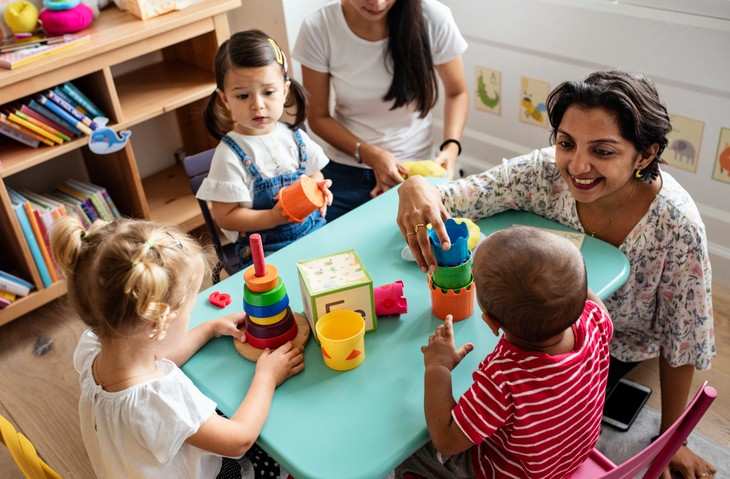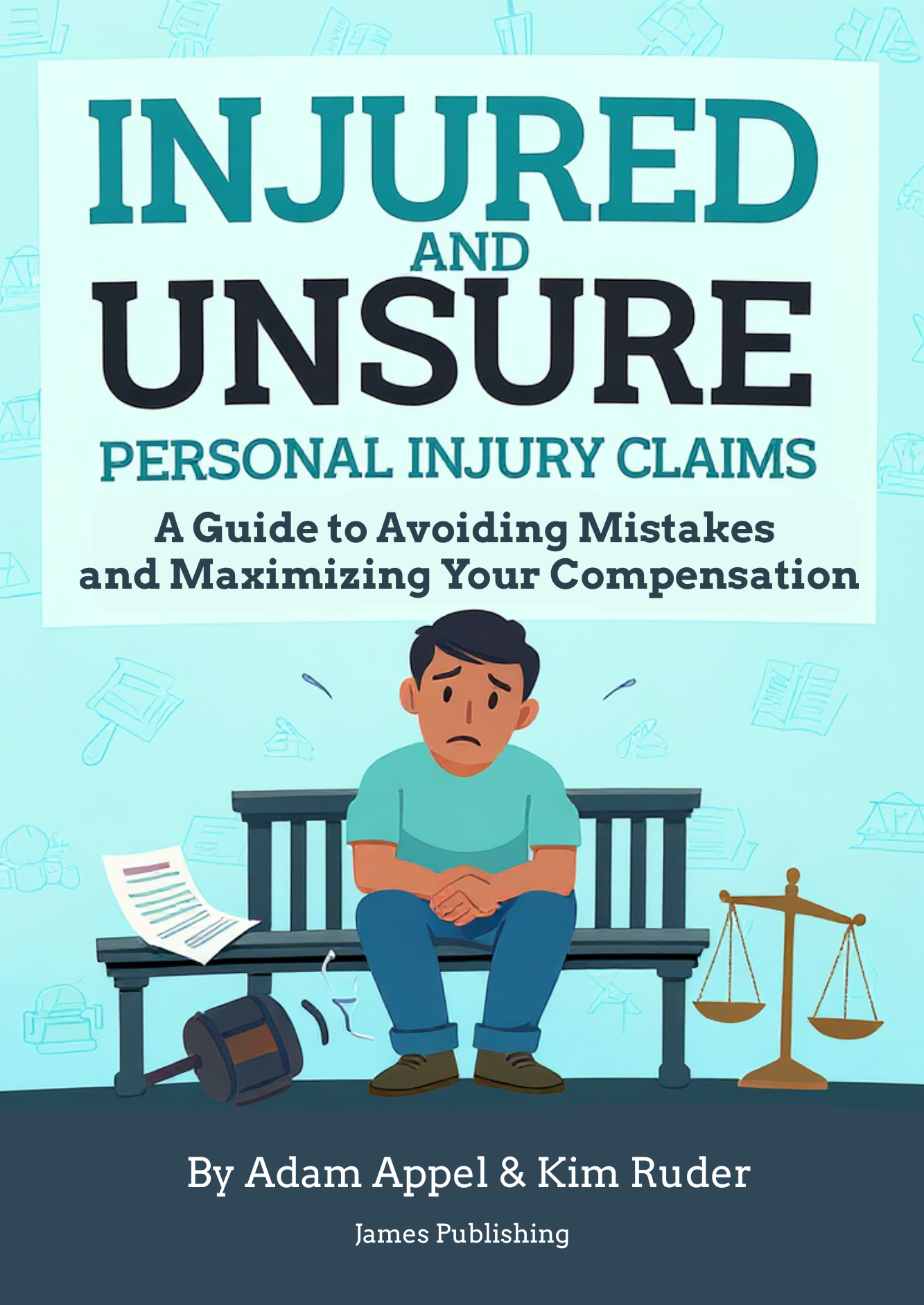Table of Contents
Parents entrust childcare facilities with their most precious treasure—their children—expecting a safe, nurturing environment, but when that trust is shattered by intentional abuse or negligence, the consequences can be devastating and life-altering. At Dermer Appel Ruder LLC, our Norcross personal injury attorneys know working parents throughout Georgia count on daycare and other childcare facilities to take care of their kids while they’re at work. Unfortunately, daycare abuse and neglect occur far too often, with many children being too young to understand or report the harm they’ve suffered.
Georgia’s daycare facilities are governed by a comprehensive set of regulations designed to ensure children’s safety, well-being, and proper development in care. The Georgia Department of Early Care and Learning (DECAL) enforces these regulations.
While school is out in the summer, more children spend more time at childcare facilities and day camps than at other times of the year. Unfortunately, with more families counting on daycare, childcare, and summer camps this time of year, there is more potential for a lack of oversight and staffing shortages that can lead to injuries and abuse. There is a shortage of qualified daycare workers. This shortage has been exacerbated by several factors, including low wages, high turnover rates and demanding working conditions. Many childcare facilities struggle to find and retain qualified staff, which can affect the quality of care provided and lead to increased stress on existing employees. This shortage is a growing concern as it impacts both the availability of childcare and the safety and development of children in these settings.
Here, we discuss some of the critical aspects of these regulations and what parents of injured or abused children can do to hold the liable parties accountable for violations.
DECAL Must License All Daycare Facilities in Georgia
In Georgia, all daycare facilities must be licensed by DECAL, which involves meeting specific standards and undergoing regular inspections. Caregivers and staff must also meet specific qualifications, including background checks, training, CPR and first aid certifications.
Other daycare health and safety standards include:
-
Child-to-Staff Ratios
The regulations specify the maximum number of children per staff member, varying by age group, to ensure adequate supervision.
Staff members must meet educational and experience requirements appropriate to their roles and are required to participate in ongoing professional development and training programs to stay updated on best practices and regulatory changes.
-
Facility Requirements
Daycare centers must maintain a safe and sanitary environment. This includes guidelines for playground safety, building maintenance, and emergency preparedness.
Daycare centers must implement an age-appropriate curriculum that promotes children’s physical, social, emotional, and cognitive development. Regulations outline the activities that should be provided, ensuring a balance of free play, structured learning, rest, and nutrition.
-
Health Policies
To ensure safety and hygiene, daycare facilities must provide nutritious meals and snacks that meet federal and state dietary guidelines, including specific food preparation, storage, and serving regulations.
There are also strict guidelines for managing illnesses, administering medications, and maintaining health records. This includes keeping detailed records for each child, including enrollment information and attendance.
-
Parental Involvement
Daycare facilities must maintain open lines of communication with parents, providing regular updates on their child’s progress and any incidents. In addition, parents can visit the daycare center anytime during operating hours to observe their child and the facility.
-
Inspections and Compliance
Licensed daycare facilities are subject to regular inspections by DECAL to ensure compliance with all regulations. That includes reporting severe incidents, such as injuries or abuse allegations, to DECAL and other appropriate authorities.
DECAL has the authority to take enforcement actions, including fines and license revocation, against facilities that violate regulations.
What Are the Most Common Legal Cases Brought Against Daycare Facilities in Georgia?
In Georgia, several legal cases are commonly brought against daycare facilities. These cases typically arise from negligence, safety violations, failure to provide adequate care and intentional abuse.
Below we discuss the most common types of cases:
-
Negligence
Supervision failures occur when children are not adequately supervised, leading to injuries or accidents. This includes situations where children are left unattended or not properly monitored or claims that the daycare did not have enough qualified staff members to ensure the safety and well-being of the children.
-
Abuse and Neglect
Allegations of bodily harm inflicted by daycare staff or other children are common complaints. This can include hitting, shaking, or other forms of physical mistreatment.
In addition, claims of verbal abuse, humiliation, or other psychological harm caused by daycare employees and cases where children are not provided necessities such as food, water, or medical care are also common in Georgia and nationwide. This can also include failure to change diapers or clean the child.
Many daycares are equipped with surveillance cameras, making it crucial to promptly recognize and report any suspected incidents to the facility. Doing so ensures that the evidence is preserved, which can be vital in addressing the situation and protecting the well-being of the children involved
-
Injuries
Common complaints arise from incidents where children are injured due to unsafe conditions, such as poorly maintained playground equipment, slippery floors, or hazardous materials within reach.
They may include injuries resulting from falls due to inadequate safety measures and injuries caused by sharp objects, hot surfaces, or other dangerous items accessible to children.
-
Health and Safety Violations
Claims involving unsanitary conditions that lead to illness or infection among children, inadequate medical care when a child’s medical needs are unmet, or emergency medical care is not provided promptly when required.
-
Sexual Abuse
Allegations of sexual abuse by daycare staff or other individuals at the facility are severe and can involve both criminal and civil proceedings.
Who Can Be Held Liable for Daycare Facility Injuries and Abuse in Georgia?
In Georgia, depending on the circumstances of the incident, several parties can be held liable for daycare injury and abuse cases.
The primary parties that can be held accountable may include:
-
Daycare Facility
The daycare facility can be held directly liable if the injury or abuse occurred due to the facility’s negligence. This includes failure to maintain a safe environment, inadequate supervision, or hiring unqualified staff.
The facility can also be held vicariously liable for the actions of its employees, meaning that the daycare is responsible for the negligent or abusive actions of its staff members while performing their job duties.
-
Daycare Staff
Employees such as teachers, caregivers, and other staff members can be held personally liable if they directly cause harm to a child through negligent or intentional actions.
Supervisors and managers can be held liable if they fail to properly oversee their staff’s actions or do not follow proper hiring and training procedures.
-
Daycare Owners
Daycare owners can be liable for failing to enforce safety protocols, conduct background checks, or adhere to state childcare facility regulations and standards.
-
Third Parties
If the injury was caused by equipment or services provided by a third party—including faulty playground equipment or food poisoning from a catering service—those third parties could also be held liable. Companies responsible for maintaining or repairing daycare facilities and equipment can also be held liable if their negligence contributed to an injury.
At our firm, we have successfully handled numerous childcare injury cases, ranging from injuries caused by damaged equipment and physical abuse by staff to failures in supervision and child-on-child abuse or injury. With our extensive experience and deep knowledge in this area, we are prepared to promptly evaluate your situation and take swift action to secure the compensation you and your child deserve when you’ve been wronged.
Contact Our Personal Injury Lawyer Today
Holding the appropriate parties accountable in daycare injury and abuse cases is crucial for ensuring justice and preventing future incidents. If your child has been injured or abused in a daycare setting, contact our Georgia personal injury lawyers at Dermer Appel Ruder today by calling (404)-892-8884 or online to discuss your case during a free consultation.

